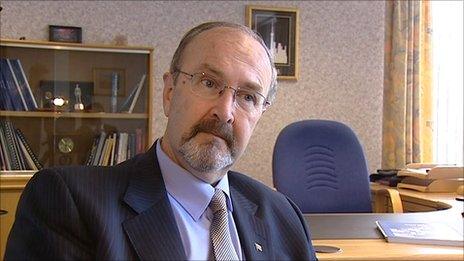Police ombudsman PSNI action 'couldn't be more significant'
- Published
Michael Maguire is taking legal action in an attempt to force Mr Baggott to hand over sensitive intelligence material
The decision of the police ombudsman to take Chief Constable Matt Baggott to court could not be more significant, a solicitor for UVF victims has said.
The action has been brought by NI's Police Ombudsman Michael Maguire.
It is over claims Mr Baggott obstructed ombudsman investigations into allegations against the police in 60 murders.
He is attempting to force the chief constable to hand over sensitive intelligence material.
This is an unprecedented legal action by the police ombudsman.
The PSNI said it believed it had responded appropriately to each request on a case-by-case basis.
The BBC understands that the investigations the chief constable is accused of obstructing include the murders of six Catholic men shot dead by the UVF as they watched a Republic of Ireland World Cup game in the Heights Bar in Loughinisland 20 years ago.
No-one has ever been convicted.
Niall Murphy, a solicitor for relatives of victims of the 1994 atrocity, said: "It couldn't be more significant in terms of the crisis of confidence that that important office holds for civic policing specifically and, more generally, how our society deals with the past."
He said one of the families he represents was told in 1994 "that no stone would be left unturned" in the investigation.
"In 2005, when they made a complaint to the then police ombudsman, Mrs O'Loan, they were again assured that no stone would be left unturned," he added.
"And here we find the chief constable hiding the stones from the police ombudsman to ensure there would be no transparent investigation.
"These delays are costing money, but they are also costing families valuable time and, in the circumstances of the Loughinisland families, it's time they don't have - Mrs Green, whose husband Barney was the oldest person to be murdered in the conflict, passed away last year."
100 refusals
Mr Maguire said he had no option but to take legal action because he had received more than 100 refusals for information.
He said the material was needed for his investigators to do their jobs.
Mr Maguire claimed the chief constable was making it impossible to investigate allegations of serious criminal activity and misconduct.
"At this point in time, the police have refused us access to 100 pieces of information involving investigations surrounding in the region of 60 murders," he told the BBC.
'Complex investigations'
"I find that unacceptable and we have no other choice but to take legal action against the chief constable.
"We're talking about complex investigations into over 60 murders where there have been allegations of police criminality and misconduct in relation to their failure to investigate those murders; the fact that they may well have been protecting individuals involved in those murders.
"Answering those questions requires access to quite a range of intelligence and other sensitive material. I need access to that in order to be able to come to a view, in order to determine whether they are right or not."
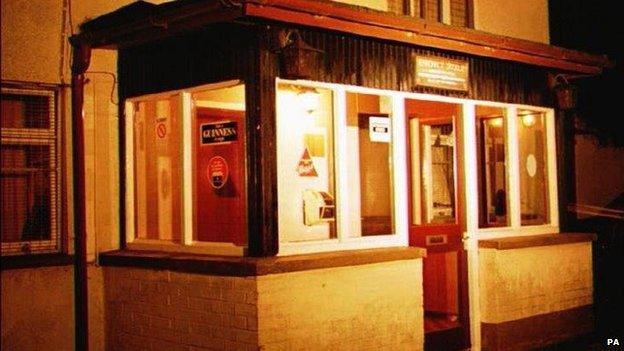
Six men were shot dead by the UVF at the Heights Bar in 1994
The ombudsman said the problem had emerged in recent months.
He launched the legal action against Mr Baggott after the Police Service of Northern Ireland (PSNI) failed to meet a deadline for handing over information requested.
In respect of Loughinisland, it has been claimed that the RUC, external did not conduct a proper investigation because they were protecting an informer, and that there was collusion between some police officers and the killers.
A report by the previous police ombudsman, Al Hutchinson, concluded that the RUC failed to properly investigate what happened at Loughinisland, but said there was insufficient evidence of collusion.
Those findings were quashed after a legal challenge by relatives of those who were killed.
Mr Maguire is now conducting a fresh investigation.
The chief constable stands accused of obstructing him by refusing to hand over intelligence material, including details about police informers that the ombudsman said was essential for him to do his job.
Mr Maguire said he was legally entitled to the information.
Access all areas
"The Police Ombudsman's office does not do investigations by negotiation," he said.

Constable Colleen McMurray was killed by an IRA mortar bomb in 1992
"This is fundamental to the independence of the office and the requirement for me to undertake a very clear and robust, independent investigation. In order to be able to do that, I need access to all areas of police activity to allow my investigators to come to a judgement about what happened.
It is understood other cases the chief constable is accused of blocking include incidents where police officers have been killed.
Police officer murdered
Colleen McMurray, external died and a colleague was seriously injured when their car was hit by a mortar in Newry, County Down, in March 1992.
It has been claimed that the RUC's Special Branch had advance warning about the attack, and that at least two IRA informers were involved.
The DUP's Jeffrey Donaldson has been helping her family's search for answers.
"I can understand at one level if the information being sought is the name of informers why the police would be reluctant to share that information," he said.
"I do hope that this matter can be resolved without resort to court and in the case of Colleen McMurray her family have been waiting now for 10 years, her elderly parents are awaiting the outcome of this report, and I do hope that the ombudsman will soon be in position to publish that report."
Another of the cases is that of three people killed by an IRA bomb in Londonderry in August 1988.
Phyllis Kiely, whose father Eugene Dalton died in the blast, said she welcomed the ombudsman's decision.
"My father was killed in our home. We received a report last year from the ombudsman and one of the issues that we had was the fact that we believed there was an informer involved in the case and that the police did not act to save my father's life because they were protecting an informer.
"I believe firmly that the ombudsman has been undermined in his position."
'Complicated legal issues'
Other cases are much more recent - and involve serious allegations against members of the PSNI.
In a statement, the PSNI said it was seeking to agree a solution with the ombudsman about what it called "complicated and, sometimes, competing legal issues".
"The PSNI has a legal responsibility for the care and management of all information that it holds - this is a responsibility which must be taken extremely seriously," the statement said.
"At the same time the PSNI also recognises the statutory responsibility to provide information to the Police Ombudsman, enabling exercise of his functions and legal responsibilities.
"We will continue to fulfil our legal obligations with the primary consideration being that of protecting life in accordance with Article 2 of the European Convention on Human Rights."
"PSNI will continue to work with PONI to seek to get an agreement over our respective obligations and ensure we both have shared understanding of the legal framework.
'Accountability'
The ombudsman is being represented by Sir Keir Starmer QC, the former director of public prosecutions for England and Wales, and a former human rights advisor to the policing board, which holds the PSNI to account.
The Policing Board said in a statement: "Police cooperation and the provision of information to the institutions with legislative responsibility for delivering independent oversight and accountability of the PSNI is critical.
"The application for leave for judicial review by the Police Ombudsman is very significant and a matter of great concern."
- Published4 June 2014
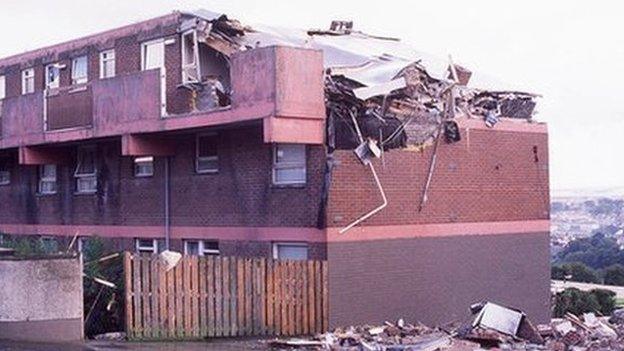
- Published3 June 2014
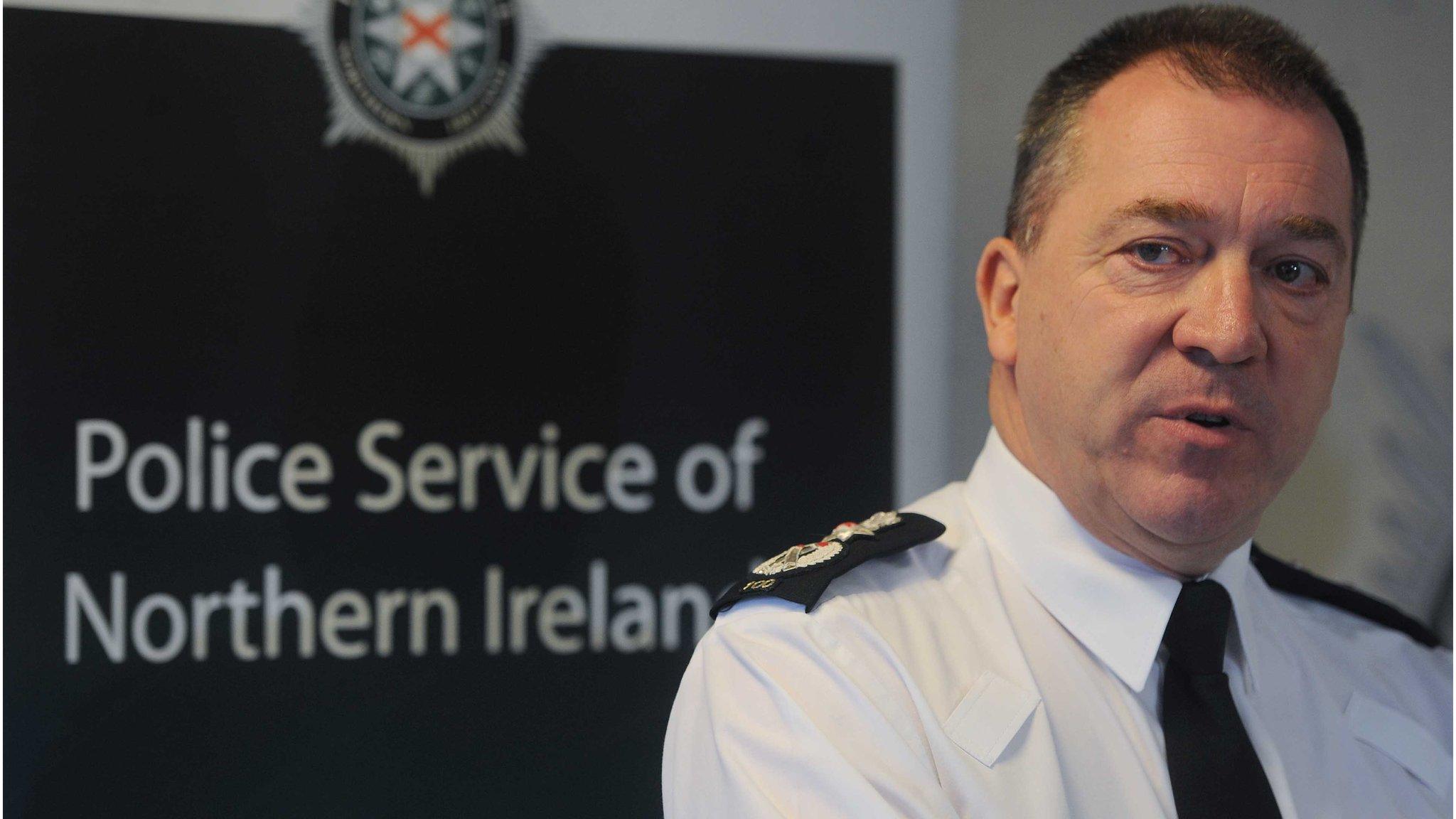
- Published5 December 2013

- Published23 January 2013
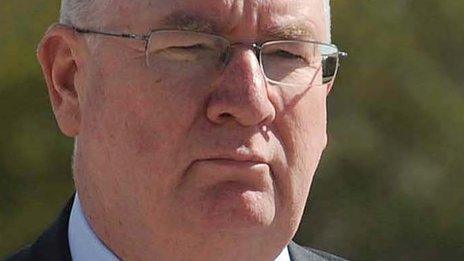
- Published23 January 2013
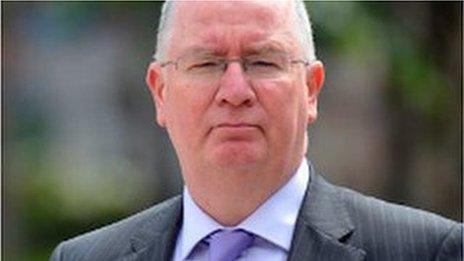
- Published17 July 2012

- Published8 September 2011
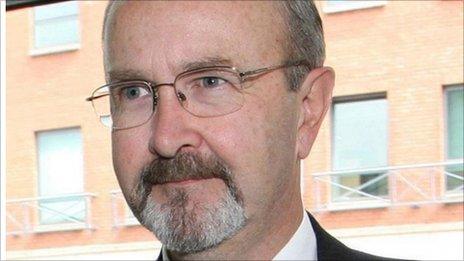
- Published5 September 2011
